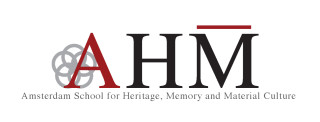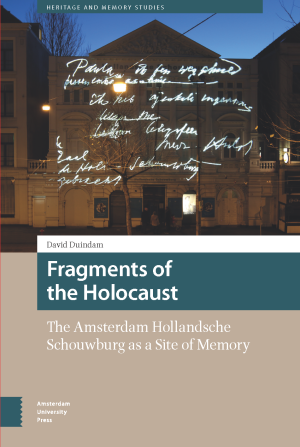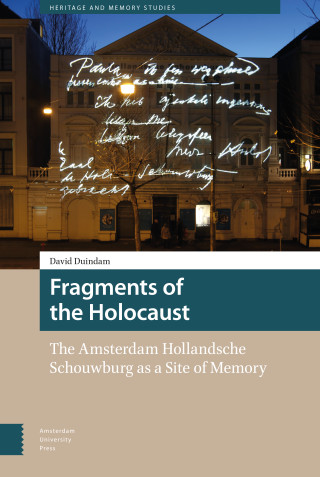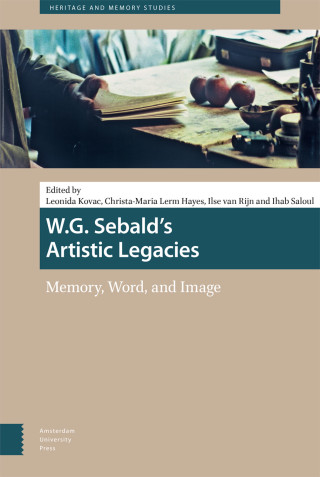

- Titel
- Fragments of the Holocaust
- Subtitel
- The Amsterdam Hollandsche Schouwburg as a Site of Memory
- Auteur
- David Duindam
- Prijs
- € 121,99
- ISBN
- 9789048538256
- Uitvoering
- eBook PDF (Adobe DRM)
- Aantal pagina's
- 264
- Taal
- Engels
- Publicatiedatum
- 17 - 12 - 2018
- Afmetingen
- 15.6 x 23.4 cm
- Partner

- Ook beschikbaar als
- Hardback - € 122,00
Table of Contents
Prologue
Chapter 1: The Dynamics of Sites of Memory
1. Performing Memory and the Remediation of the Past
2. Remnants of the Past: Heritage and the Museum
3. The Spatial and Performative Character of Urban Memory
Chapter 2: The Construction of an In Situ Memorial Site: Framing Painful Heritage
1. National Framing and Silent Memories: The Persecution of the Jews as Part of Collective Suffering
2. Honoring the memory of victims: pride and national debt
3. Addressing Painful Heritage: Representation and Appropriation
Chapter 3: The Performance of Memory: The Making of a Memorial Museum
1. Place-Making and Spatial Narratives: Early Commemorations
2. A Public Memorial
3. Yom HaShoah as a Dutch-Jewish Commemoration
4. From Memorial to Memorial Museum
Chapter 4: The Fragmented Memorial Museum: Indexicality and Self-Inscription
1. The In Situ Memorial Museum: Mediation and Latent Indexicality
2. Conflicting Scripts, Routing and Self-Exhibition
3. Performing the Site: Walking and Self-Inscription
Chapter 5: The Proliferation of Spatial Memory: Borders, Façades and Dwellings
1. Proliferation and Demarcation of Sites of Memory
2. The Façade and the Passerby: Dissonance and Interaction
3. The House as Index, the House as Dwelling: Collaborative Memory Projects
Epilogue
Summary
Samenvatting
Previous publications and co-authorship
Acknowledgements
Bibliography
David Duindam
Fragments of the Holocaust
The Amsterdam Hollandsche Schouwburg as a Site of Memory
De onderstaande tekst is niet beschikbaar in het Nederlands en wordt in het Engels weergegeven.
Why do we attach so much value to sites of Holocaust memory, if all we ever encounter are fragments of a past that can never be fully comprehended? David Duindam examines how the Hollandsche Schouwburg, a former theater in Amsterdam used for the registration and deportation of nearly 50,000 Jews, fell into disrepair after World War II before it became the first Holocaust memorial museum of the Netherlands. Fragments of the Holocaust: The Amsterdam Hollandsche Schouwburg as a Site of Memory combines a detailed historical study of the postwar period of this site with a critical analysis of its contemporary presentation by placing it within international debates concerning memory, emotionally fraught heritage and museum studies. A case is made for the continued importance of the
Hollandsche Schouwburg and other comparable sites, arguing that these will remain important in the future as indexical fragments where new generations can engage with the memory of the Holocaust on a personal and affective level.
Auteur
David Duindam
Dr. David Duindam is a memory and heritage scholar at the University of Amsterdam. He is lecturer at the department of Literary and Cultural Analysis and member of the Amsterdam School for Heritage, Memory and Material Culture.




